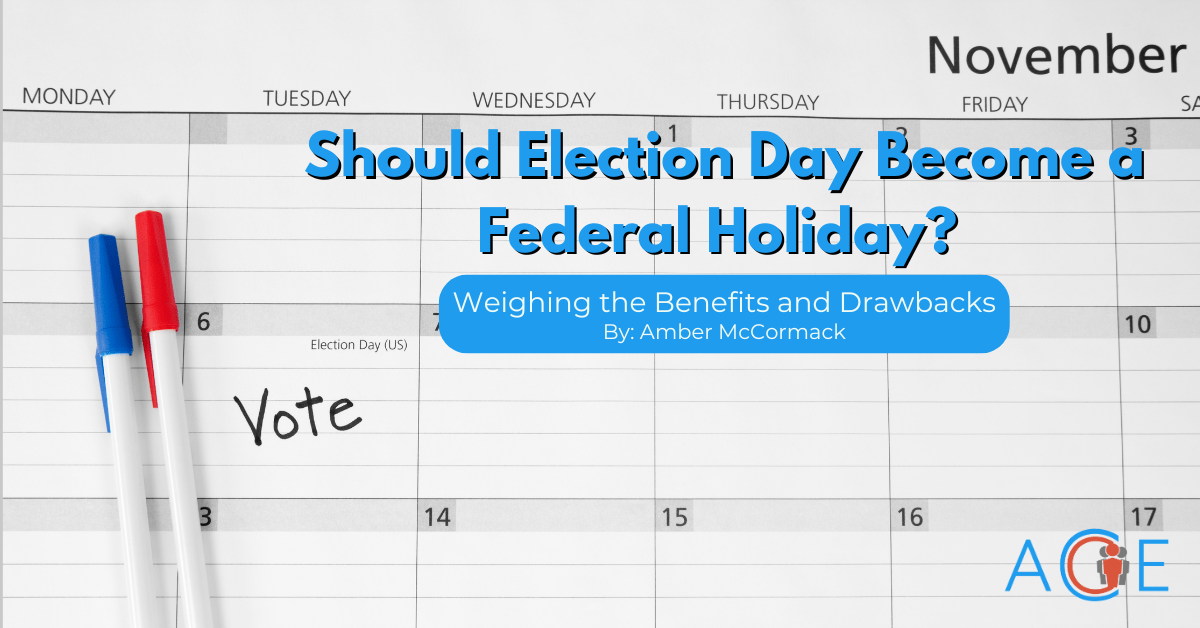Is it time to make Election Day a federal holiday? 🗳️ Some say it would boost voter turnout and align the U.S. with other democracies, while others argue it could create challenges for hourly workers and cost millions. Dive into the debate over whether a federal voting holiday is the best way to strengthen democracy or if there are better solutions. Check out the full breakdown!



ID and citizenship requirements seem like pretty basic requisites to voting, what’s wrong with those?
Inconsistent access and inconsistent standards, for the most part.
A classic example is how certain states (Texas, for instance) will assert that gun licenses qualify as a valid ID but state university student IDs will not. Another is in how IDs - like driver’s licenses - have a fee associated with registration and renewal, which amounts to a poll tax. A third is that citizenship isn’t necessarily a prerequisite for voting in municipal and state elections. So requiring someone to be a citizen before accessing a ballot becomes an unconstitutional burden at the state and local level.
Then there’s the fact that we already have a voter id system. It’s called your voter registration card. You typically get one after you’ve registered to vote in your municipality. The fight over voter ID is that you need a second piece of identification on top of the registration card.
Broadly speaking, if everyone was afforded equal access to a single uniform ID document at no cost, there wouldn’t be a problem. But so much of the Voter ID rules don’t establish homogeneous ID requirements. Implementation is left up to the states. So states with a history of hostility towards democratic rule can back-door disenfranchisement into the process of obtaining these documents.
There is currently no voter registration card where I’m from. All you have to do is say your name and they check you off. If you aren’t registered in the area, you can bring a piece of mail with your name and address to prove you live in that precinct, or someone to vouch for you, then you are given a ballot and they add you to the registration for next time. But yes it sounds like there is a lot of variation in how states implement or assure the integrity of their elections, and all of them are prone to certain kinds of abuse, whether it’s discouraging voters or vote harvesting or some other illegal mechanism for influencing elections in favor of the established powers.
Because not everyone has an ID or proof that they are a citizen, and in the United States, you’re presumed innocent until proven guilty. When you register to vote, you fill out a form stating you are a citizen and elligible to vote. There are existing mechanisms to check that voters are eligible. If you lie or commit fraud, those are crimes. There’s a paper trail, and if it were an actual problem, there would be proof that it’s happening.
Homeless people have the right to vote. Forgetful and disorganized people have the right to vote. Hermits and people who survive house fires have the right to vote. ID requirements or requiring proof of citizenship creates an unnecessary barrier that disenfranchises more legal voter than the illegal votes it prevents. Because that’s the point of them, they want to stop legal voters from voting.
But you can’t ignore very real problems with increasing the pool of ignorant voters, since whoever has the most access to that pool will have an advantage because these ignorant voters can be taken advantage of simply because they are ignorant. Should people be voting if they don’t know how the system works or what the candidates even stand for? If you can’t be bothered to care about it enough to go through minimal requirements, do we need to go out of our way to shove a ballot in their hands?
And yes, I acknowledge that the kind of thinking I outlined above can be used to repress voters as well. I guess my point is that these policies cut both ways. It’s not such a clear cut answer as “give everyone a ballot”, because that can (and has) very very easily turn into “give them a ballot and suggest who they should vote for”.
Yes, because ensuring everyone can vote is how I know I will always be able to vote. Democracy is about self-determination. There is no competency requirement for people making decisions for themselves.
Now, if you told me we were going to have competency requirements for candidates, thats something I might support, depending on how it’s implemented.